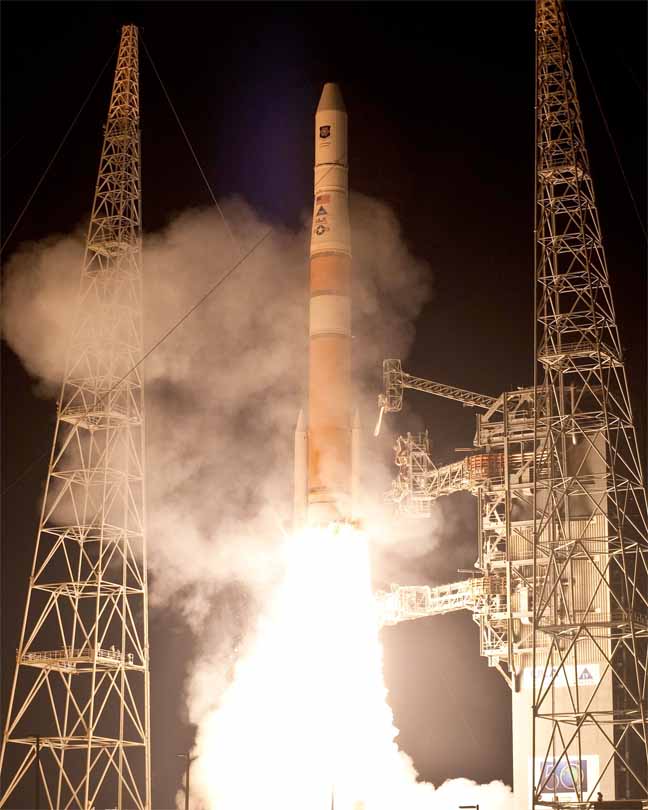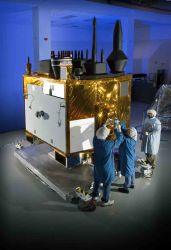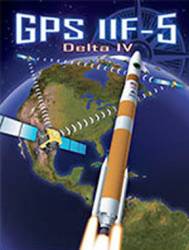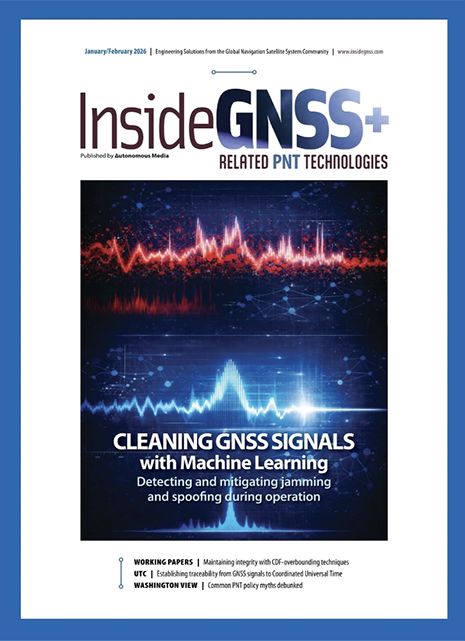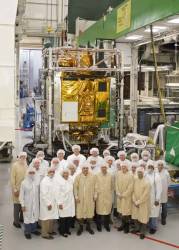 Block IIF satellite undergoing tests at Space & Missile Systems Center, Los Angeles Air Force Base, California
Block IIF satellite undergoing tests at Space & Missile Systems Center, Los Angeles Air Force Base, CaliforniaHaving successfully passed its initial phase of tests at the Space & Missile Systems Center at Los Angeles Air Force Base, the first GPS Block IIF (follow-on generation) satellite is expected to enter the second round of thermal vacuum testing in late March, according to the GPS Wing.
On December 24, the GPS IIF program completed the first of two phases of thermal vacuum testing on the first IIF space vehicle (SV-1) built by The Boeing Company. This was "a major success for the program," in the words of GPS Wing officials. Thermal-vac tests exposed the spacecraft to extreme hot and cold temperatures under vacuum conditions to verify system performance and correlate the thermal models, according to the GPS Wing.
Having successfully passed its initial phase of tests at the Space & Missile Systems Center at Los Angeles Air Force Base, the first GPS Block IIF (follow-on generation) satellite is expected to enter the second round of thermal vacuum testing in late March, according to the GPS Wing.
On December 24, the GPS IIF program completed the first of two phases of thermal vacuum testing on the first IIF space vehicle (SV-1) built by The Boeing Company. This was "a major success for the program," in the words of GPS Wing officials. Thermal-vac tests exposed the spacecraft to extreme hot and cold temperatures under vacuum conditions to verify system performance and correlate the thermal models, according to the GPS Wing.
Program engineers are now performing planned rework and retest for some units, which will be followed by other environmental tests such as acoustic and separation testing before the second phase of thermal vacuum testing.
The GPS Wing expects to complete the second phase of thermal vacuum testing completion in July. Assuming all goes well with the remaining tests, the first launch of a Block IIF satellite will be early in 2009.

